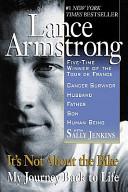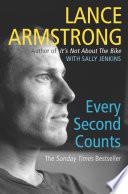Lance Edward Armstrong is an American former professional road racing cyclist. Armstrong is the 1993 professional world champion, and won the Tour de France a record seven consecutive times from 1999 to 2005. However, in 2012, he was banned from sanctioned Olympic sports for life as a result of long-term doping offenses. As part of those sanctions, all results going back to August 1998, including his seven Tour wins, were voided.
At age 16, Armstrong began competing as a triathlete and was a national sprint-course triathlon champion in 1989 and 1990. In 1992, Armstrong began his career as a professional cyclist with the Motorola team. He had notable success between 1993 and 1996, including stage 8 of the Tour de France and the World Championship in 1993, the Clásica de San Sebastián in 1995, Tour DuPont in 1995 and 1996, and a handful of stage victories in Europe, including stage 18 of the 1995 Tour de France.
In 1996, he was diagnosed with a potentially fatal metastatic testicular cancer. After his recovery, he founded the Lance Armstrong Foundation to assist other cancer survivors.
Returning to cycling in 1998, he was a member of the US Postal/Discovery team between 1998 and 2005, when he won his Tour de France titles, as well as a bronze medal in the 2000 Summer Olympics. Armstrong retired from racing at the end of the 2005 Tour de France, but returned to competitive cycling with the Astana team in January 2009, finishing third in the 2009 Tour de France later that year. Between 2010 and 2011, he raced with Team Radio Shack, the UCI ProTeam he helped found. He retired for a second time in 2011.
Armstrong had been the subject of doping allegations ever since winning the 1999 Tour de France. In 2012, a United States Anti-Doping Agency investigation concluded that Armstrong had used performance-enhancing drugs over the course of his career and named him as the ringleader of "the most sophisticated, professionalized and successful doping program that sport has ever seen." Armstrong chose not to contest the charges, citing the potential toll on his family. As a result, he received a lifetime ban from all sports that follow the World Anti-Doping Code—effectively ending his competitive career. He was also stripped of all of his achievements from August 1998 onward, including his seven Tour de France titles. The Union Cycliste Internationale upheld USADA's decision and decided that his stripped wins would not be allocated to other riders. Armstrong chose not to appeal the decision to the Court of Arbitration for Sport. In a 2013 interview, Armstrong confessed that some of the allegations were true. He has declined to testify about the full extent of his use of the drugs. In the aftermath of his fall from grace, a CNN article wrote that "The epic downfall of cycling's star, once an idolized icon of millions around the globe, stands out in the history of professional sports."
✵
18. September 1971
•
Other names
لانس آرمسترانق


